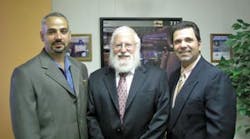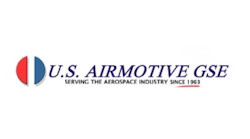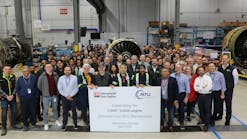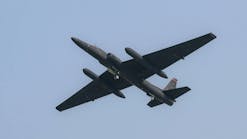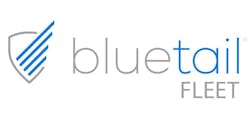“Our whole company is based upon the years of experience and the personnel who are qualified in the niche market that we sell,” says Frank Bortunk, president of U.S. Airmotive GSE.
As a manufacturer and distributor in the GSE industry since 1963, the personnel have collectively amassed 125 years of experience. Their expertise has helped guide the company to different areas of opportunity for growth.
The Miami-based company has primarily acted as a stocking distributor for a wide range of products, including Jet Starter hoses and couplings, AC/DC plugs and receptacles, air conditioning/heating hoses and adaptors, and potable water couplings.
The company also manufactures ground power cable assemblies with sites in Miami and Massachusetts. It is in the process of expanding the facility in Miami, which the company anticipates will be opened by the fourth quarter of this year, according to Bortunk.
The company also has established a presence across the country with sales offices located in Los Angeles and New York.
As well as increased manufacturing, U.S. Airmotive GSE has kept a strategic eye on further expansion of its product base. “We always look for new products, other ideas that we can incorporate into our field to expand and increase the base, which we need to increase sales,” Bortunk says. “With new products, rather than products that we have, we are increasing sales due to the soft dollar overseas. New products have opened up our entire marketplace.”
One such product that the company introduced to its base to further solidify its stance as a supplier, is the crush-proof lavatory hose, which the company helped design along with the manufacturer. “It was a perfect fit, and it was something that the airlines wanted,” Bortunk says. “It increased the sales for that particular product, but decreased the repetitiveness of the sale because it lasts that much longer. It was something that the industry wanted, and needed, so we brought it to market.”
In its capacity as both a manufacturer and distributor, U.S. Airmotive GSE has accumulated a substantial list of customers in more than 55 countries, including OEMs, airlines, airport authorities, airport handlers and government agencies.
FACING A TURBULENT INDUSTRY
Though the company has held a steady gaze toward expansion, it has met a significant challenge in a post-9/11 industry. “Besides competitive companies, the biggest challenge for our company has always been identifying the level of financial strength of our customers,” Bortunk says. “Since 9/11 the criteria of a ‘solid company’ has changed significantly in a short period of time due to the circumstances happening outside our industry, and only quick action has helped us continue to increase our strong financial outlook.
“We have a tighter rein on our receivables, no matter who the customer might be,” he says. “After a point of time, we would rather not sell than take a chance if a customer seems to be failing in their payment terms. It’s one indication that something might be wrong, or they cannot afford to pay. We would rather sell, on open account, to a dealer from whom we will collect the money than an account that we feel will not pay within terms.”
The skyrocketing fuel costs along with a recent flood of airline bankruptcies have intensified what has become a familiar challenge for the company. “The airlines are in a very poor condition as far as losing money, and they seem to be buying now only when they need the material on an emergency basis,” Bortunk says. “And so, more of the stocking of product falls onto us to stock for them when they need it, and only when they need it, and not buying anything extra. They still need the material in order to fly, but our problem is to whom to sell, to determine who will be the next one going bankrupt, which could be anybody’s guess and, unfortunately we, the suppliers in the industry, are the ones hit the hardest when that occurs.”
AN INTERNATIONAL FOCUS
U.S. Airmotive GSE has concentrated its immediate efforts in the international market, as the weak dollar has attracted far-flung customers in countries new to its clientele base, including Ukraine, Russia, Poland and Laos. “No question that the expansion is overseas right now, and the dollar being soft helps tremendously,” he says.
“In the past customers have been quoted as saying that the material made in the United States was too expensive,” Bortunk says. “They always prefer to have the American-made product, but unfortunately over the past years it was too expensive for them to procure, so they bought local products or something from other countries that probably was not to their liking, but it was the only choice they had. Now, because the dollar is so soft, they are able to come and buy the product they want.”
Though the company has shifted its focus to contend with the industry circumstances, it has continued to rely on a simple theory regarding client relations to retain its market strength. “Our customer service, information and knowledge of the product line, and our honesty with our customers, have had a great impact on keeping our old customers and attracting new ones,” he says.
